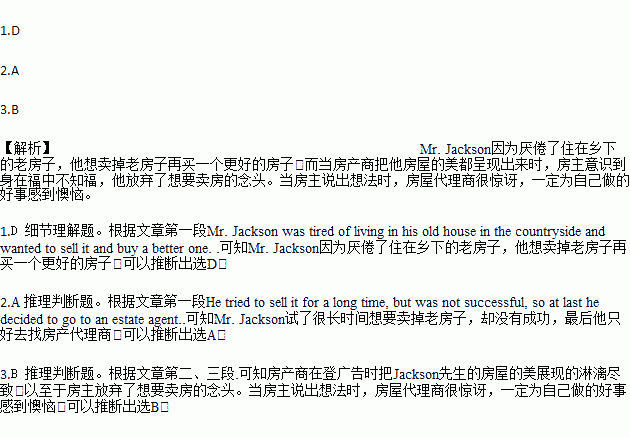题目内容
Mr. Jackson was tired of living in his old house in the countryside and wanted to sell it and buy a better one. He tried to sell it for a long time, but was not successful, so at last he decided to go to an estate agent.
The agent advertised (登广告) the house straight away, and a few days later, the owner saw a very beautiful photograph of his house, with a wonderful description of his garden in an expensive magazine.
Having read the advertisement through, the house owner hurried to phone the estate agent, saying, “I’m sorry, Mr. Jones, but I’ve decided not to sell my house after all.” “Why?” the agent asked in a surprised voice. “Because from the advertisement in that magazine I can see it’s just the kind of house I’ve wanted to live in all my life.”
1.Mr. Jackson wanted to sell his house because .
A. he needed some money to support his family
B. his house was too old to live in
C. he wanted some money to buy a new one
D. he didn’t want to live in the house any longer
2.The reason why Mr. Jackson went to the estate agent was .
A. he had failed in selling his house by himself
B. he wanted the estate agent to help him to get a good price
C. he was sure that the estate agent could help him
D. he wanted the estate to advertise his house in the magazine
3.At last Mr. Jones .
A. was successful in selling the house
B. felt sorry to have lost a sale by his doing too good a job
C. was satisfied with what he had done in the advertisement
D. didn’t understand why Mr. Jackson had changed his mind
 天天向上一本好卷系列答案
天天向上一本好卷系列答案 小学生10分钟应用题系列答案
小学生10分钟应用题系列答案
